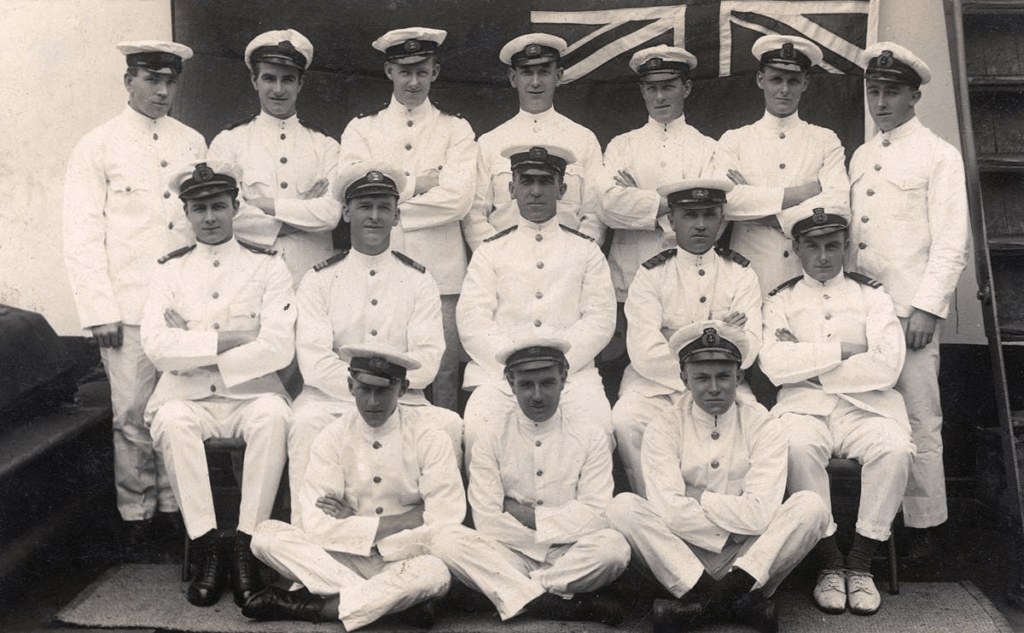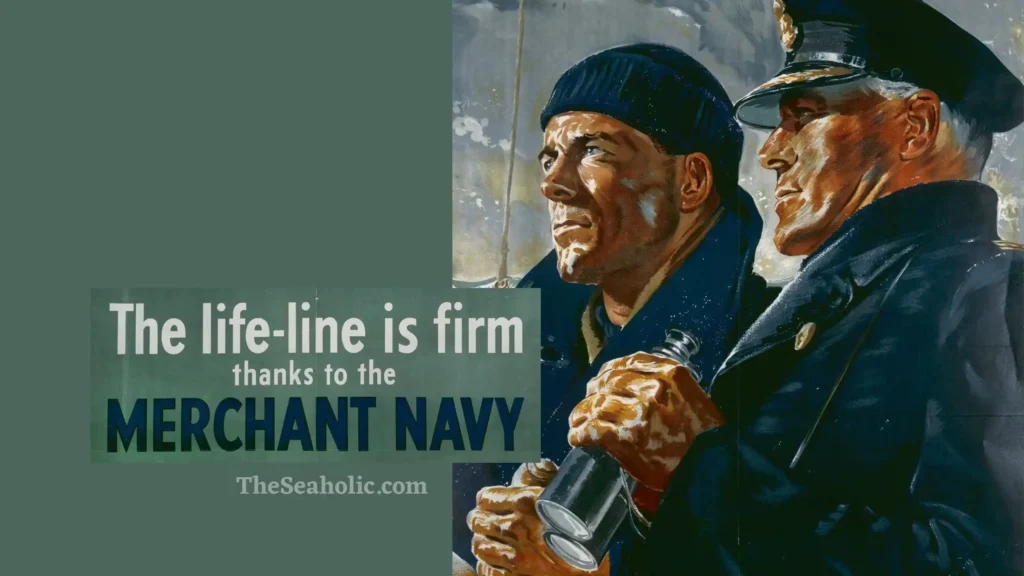In the tumultuous era of World War II, the Merchant Navy played a pivotal role in supporting military efforts and ensuring the survival of nations. As an essential maritime fleet responsible for transporting goods, supplies, and troops across treacherous waters, the Merchant Navy enabled nations to sustain their war efforts and maintain vital supply chains. This article delves into the significant contributions and sacrifices made by the Merchant Navy during World War II, highlighting its essential role and unsung heroes.
The Merchant Navy’s Critical Role
Supporting Troop Deployment and Logistics
The Merchant Navy played a crucial role in the transportation of troops to war zones, providing the logistical backbone for military operations. Merchant ships ferried soldiers, weapons, and equipment across the oceans, ensuring the timely reinforcement of military personnel on various fronts. This facilitated strategic movements and bolstered the strength of allied forces, ultimately aiding in the triumph over the Axis powers.
Active Role of Merchant Navy in World War II
In wartime, Britain depended on civilian cargo ships to import food and raw materials, as well as to transport soldiers overseas, and keep them supplied. The title ‘Merchant Navy’ was granted by King George V after the First World War to recognise the contribution made by merchant sailors.
Britain’s merchant fleet was the largest in the world during both world wars. In 1939, a third of the world’s merchant ships were British, and there were some 200,000 sailors. Many merchant seamen came from parts of the British Empire, such as India, Hong Kong and west African countries. Women also sometimes served at sea in the Merchant Navy.

After the First World War King George V, in recognition of the contribution made to the British war effort by merchant ships, granted the title of ‘Merchant Navy’ to non-military sailors. As the outbreak of World War II edged closer in 1939, the British merchant fleet remained the largest in the world, employing some 200,000 men and women.
This number made up around one third of the entire global merchant fleet at the time, with many of the seamen coming from all over the Empire, including India, Hong Kong and West Africa.As the outbreak of World War II edged closer in 1939, the British merchant fleet remained the largest in the world, employing some 200,000 men and women.
After the declaration of war in September 1939, the Ministry of Shipping – then under the control of Lieutenant-Colonel Sir John Gilmour – took control of the merchant fleet.Merchant Navy was the Second Line of Defence and It was the job of the Ministry to decide what cargo the ships would carry and the function they would fulfil in order to best support the war effort, while crewing and provisioning remained under the jurisdiction of the shipping industry. Particular emphasis was put on implementing the convoy system, by which warships would customarily escort groups of merchant ships to deter attacks from German U-boats.
With all of Britain’s oil arriving by sea, half of her food, and most of her raw materials – more than a million tonnes per week, in total- the smooth functioning of the merchant fleet was integral to the nation’s survival.The struggle for control over the Atlantic shipping routes, which would eventually become known as the ‘Battle of the Atlantic’, was one of the longest campaigns of WWII.
Germany turned submarines, battleships, aircraft and mines on Britain’s supply lines, while British and American shipyards worked tirelessly to replace those ships that were sunk.Despite sharing the word ‘Navy’ in their titles, the difference between the Royal and Merchant Navies was that sailors in the latter were classed as civilians.
After the outbreak of war, Germany declared that every vessel of the British mercantile marine was to be regarded as a warship, meaning that the sailors of the Merchant Navy faced tremendous risks.
Tragically, 30,248 merchant seamen lost their lives during World War Two, a death rate proportionally higher than in any of the armed forces.
Also read Top 10 Sportsub Submarines to Travel the Ocean
Sustaining Supply Chains
In times of war, sustaining supply chains becomes a matter of utmost importance. The Merchant Navy diligently transported essential supplies, including food, fuel, ammunition, and raw materials, to war-torn nations. Their unwavering commitment to overcoming risks and challenges, such as submarine attacks and hostile environments, ensured that troops had the necessary resources to continue fighting. The Merchant Navy’s resilience and dedication were instrumental in preventing logistical breakdowns and maintaining the flow of vital goods.
Evading Enemy Threats
Operating in hostile waters, the Merchant Navy faced constant threats from enemy forces, particularly German U-boats. These deadly submarines sought to disrupt supply lines by targeting merchant vessels. However, the Merchant Navy, supported by advances in naval technology and evolving tactics, valiantly defended their ships.
They employed convoy systems, armed escorts, and anti-submarine warfare measures to counter the U-boat menace and safeguard their cargo. Their unwavering determination and bravery exemplified the resilience of the Merchant Navy in the face of adversity.
The Human Element: Unsung Heroes

Merchant Navy Personnel
The Merchant Navy’s success in World War II hinged upon the dedicated men and women who served aboard the merchant vessels. These individuals displayed remarkable courage and selflessness, often risking their lives to fulfill their duty. Navigators, engineers, cooks, and deckhands worked tirelessly in challenging conditions, braving harsh weather, torpedoes, and enemy fire. Their unwavering commitment ensured the safe passage of goods and troops, underscoring the indispensable role they played in the war effort.
Civilian Volunteering
Not limited to professional seafarers, the Merchant Navy welcomed civilian volunteers who joined their ranks during World War II. These brave individuals, many of whom had no prior maritime experience, volunteered to serve their nations in a time of crisis. Their contributions were invaluable, as they filled critical roles and provided essential support to the professional crews. The determination and sacrifice of these civilian volunteers mirrored the spirit of resilience and unity that defined the war era.
Legacy and Recognition
Post-War Recognition
Despite their vital contributions, the Merchant Navy often went unrecognized in the aftermath of World War II. The focus primarily centered on the military and their accomplishments, overshadowing the Merchant Navy’s immense role in the war effort. However, in recent years, efforts have been made to rectify this historical oversight. Tributes, memorials, and honors now acknowledge the Merchant Navy’s sacrifices and emphasize their importance in shaping the outcome of the war.
Commemorating the Fallen
Remembrance of those who lost their lives while serving in the Merchant Navy is a somber obligation. Memorials across the globe honor the bravery and sacrifice of these individuals, ensuring that their legacy endures. The Merchant Navy Association, established in various countries, actively preserves the history of the Merchant Navy and raises awareness of its significance in wartime operations.
Conclusion
The Merchant Navy’s invaluable contributions during World War II cannot be overstated. Through their unwavering dedication, they ensured the sustained supply of troops and resources, supporting military operations and securing victory for the allied forces.
The resilience, bravery, and sacrifice of the Merchant Navy personnel, both professional and civilian, deserve recognition and appreciation. As we reflect on the heroism displayed by these unsung maritime heroes, it is imperative to remember their instrumental role in shaping the course of history during one of humanity’s darkest times.

